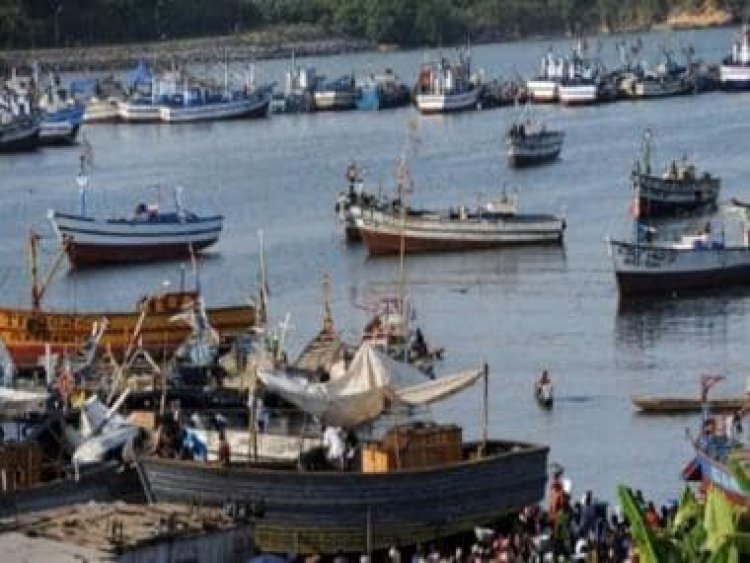China’s predatory fishing trawlers threaten to upended Africa’s food security
China’s predatory fishing trawlers threaten to upended Africa’s food security

New Delhi: Fishing holds the coastal communities in Ghana together, providing a livelihood for more than two million people. The occupation is an integral part of the country’s traditions and cultures. However, new investigation shows how Chinese vessels engaged in illegal fishing are depleting stocks of the marine life. In fact sometimes these fishing-trawler sell the fish back to local communities at a much higher rate as well.
China’s illegal fishing
As per a report by VOA News, China, the world’s biggest fish producer has the largest distant-water fleet of 2,701 vessels officially. However, many of these engage in high instances of illegal and unreported fishing as per the NGO Environmental Justice Foundation.
A report by the NGO found that some 90 per cent of Ghana’s industrial trawl fleet is actually owned by Chinese corporations using local companies as facades to register as Ghanaian and get around local laws.
Environmental Justice Foundation report
“Environmental Justice Foundation (EJF) has identified continuous instances of illegal, unreported and unregulated fishing and human rights abuses associated with the CDWF in West Africa, especially Ghana, where Chinese companies use elaborate schemes to hide the ultimate beneficial ownership of their so-called Ghanaian domestic vessels. These schemes include joint ventures, shell companies and subsidiaries,” the report says, as cited by VOA News.
Must Read: More than Taiwan, is China eyeing to grab Russian far east?
EJF further found that 78.5 per cent of CDWF’s approved offshore fishery projects in Africa. CDWF bottom-trawlers catch an estimated 2.35 million tons of fish a year in West Africa, accounting for 50 per cent of China’s total distant water catch and worth some $5 billion, the report said.
Depletion of resources
The Guardian reports that fish population in the West African country is depleting, a majority of which are small pelagic species on which artisanal fishers rely. Sardinella catches have plummeted from about 136,000 tonnes in 1996 to 29,000 tonnes in 2016.
The report quoted a 40-year-old artisanal fisher Kofi Tawia as saying that the catch has declined “drastically”, to a point that there are so few fish that negotiations over how to share the day’s catch that it often leads to brawls.
Saiko and how it is blamed
The report further attributes the damage to industrial fleets. Saiko, which began as informal trading system in which unwanted fish caught by large ships – like anchovies and sardinella – were exchanged at sea for foods such as fruit, water and even livestock, has now evolved into a highly organised, lucrative – and illegal – industry.
Catastrophic conditions
The EJF reports, as per ADF Magazine says that Ghana loses $50 million a year through opaque arrangements with foreign companies. The result of overfishing in Ghana has been catastrophic with the annual income dropping by as much as 40 per cent per artisanal canoe in the past 15 years, despite having more than 100,000 fishermen and 11,000 canoes.
How Ghana has reacted?
With 20-40 percent of Ghana’s population becoming food insecure, the report states that this year Ghana drafted a new National Integrated Maritime Strategy that aims to ensure that its maritime domain will be safe and its blue economy thriving by 2040. The strategy was developed with support from the Centre for Maritime Law and Security and the United Nations Office on Drugs and Crime with funding from Denmark and will help build a sustainable blue economy.
With inputs from agencies
Read all the Latest News, Trending News, Cricket News, Bollywood News,
India News and Entertainment News here. Follow us on Facebook, Twitter and Instagram.
What's Your Reaction?



























































